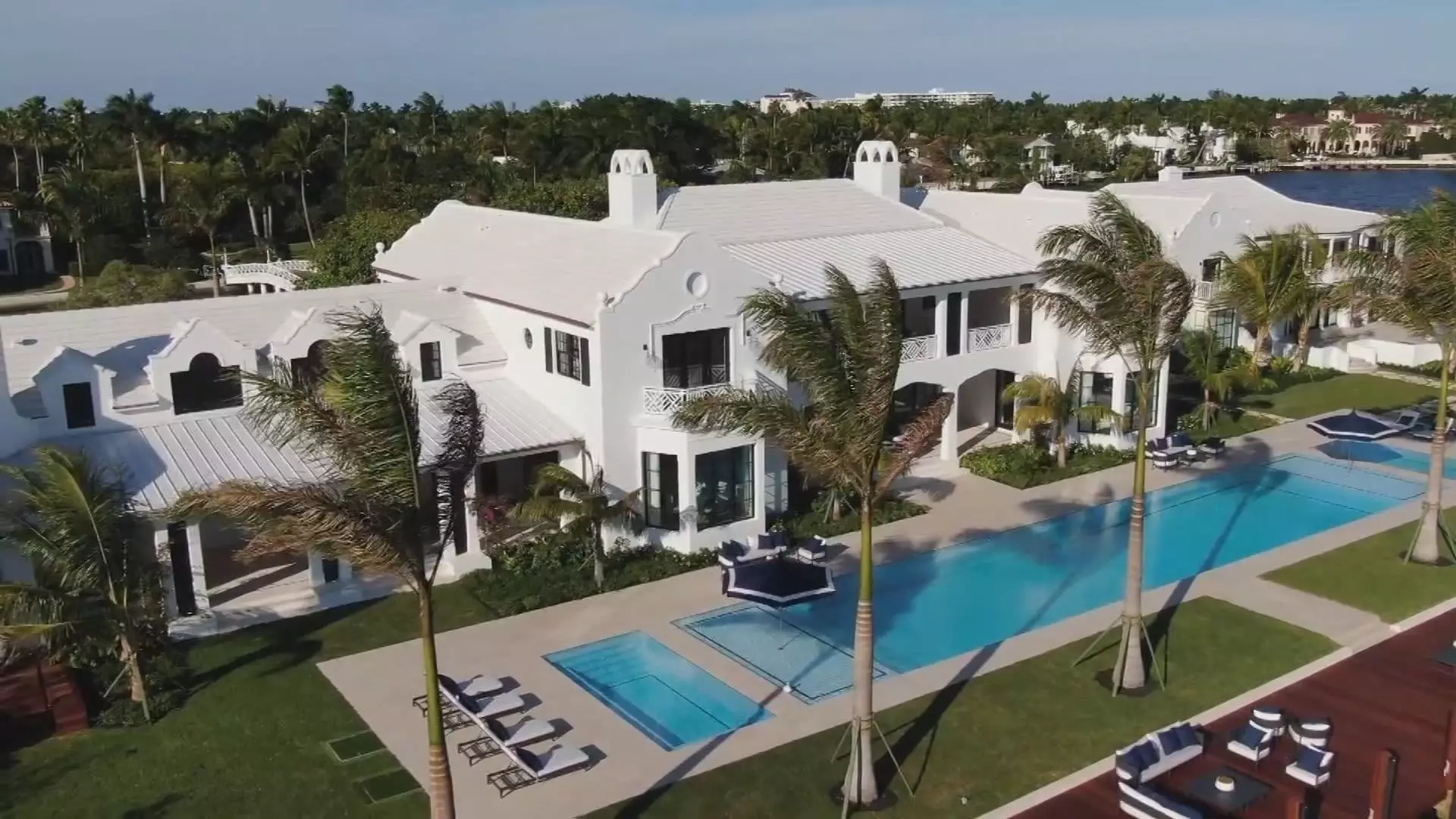In recent times, the ultra-luxury real estate market has witnessed astonishing developments, particularly in specific locales that continue to attract the wealthiest of buyers. According to a comprehensive study by Knight Frank, the second quarter of the year saw remarkable increases in the sale of luxury homes priced at $10 million and above across various U.S. cities. Interestingly, while many global markets experienced a downturn in luxury home sales, areas such as New York, Miami, and Palm Beach flourished, reflecting a disparity that deserves deeper exploration.
The statistics detailing the sales of ultra-luxury homes highlight a pronounced trend indicating that certain markets are thriving. For instance, Palm Beach experienced a staggering 44% increase in sales during the second quarter, while Miami’s numbers soared by 27%. New York, typically known as a cornerstone of the luxury housing market, achieved a 16% spike in transactions over the same period. Notably, New York led the United States for sales above the $10 million mark, clocking in at 72 transactions—the highest figure observed in two years.
Comparatively, Los Angeles, once a frontrunner, faced a decline of 29% attributed to the newly introduced mansion tax, which imposes a 5.5% levy on home sales surpassing the $10 million threshold. This trend signifies the impact that fiscal measures can have on real estate markets, especially in high-value segments. The top sales figures reveal how lucrative this market can be, with transactions reflecting eye-popping sums, such as the historic sale of Palm Beach’s only private island for $150 million.
A significant driver behind the increasing sales in select locations can be traced back to the elevated levels of wealth generation. The ultra-wealthy demographic is not only resilient but is also actively seeking distinctive and rare properties, underpinning their status and affluence. Industry experts, including Liam Bailey from Knight Frank, pinpoint the transformative nature of markets like Miami and Palm Beach as key contributors to the surge in luxury sales, effectively compensating for declines observed in more mature markets.
The allure of trophy properties remains potent, particularly for buyers eager to invest in unique assets that boast historical value or architectural significance. Moreover, the post-pandemic landscape has seen a shift in preferences, with many affluent individuals gravitating towards locations offering not just lavish homes but also enhanced lifestyle offerings.
While the U.S. markets highlighted strong performances, globally, the picture appears mixed. Knight Frank’s report encapsulates an overall 4% decrease in ultra-luxury home sales across the 11 global cities monitored. Dubai has emerged as a fascinating case study, skyrocketing to prominence with 85 transactions recorded in the second quarter—up from a mere 23 just four years ago. This meteoric rise can be attributed to a migration of wealth, with affluent buyers from various regions favoring Dubai for its attractive tax environment and favorable regulatory framework.
Conversely, London has not fared as well, experiencing a colossal 47% drop in transactions of homes exceeding $10 million. Concerns surrounding potential increased taxation on wealthy individuals have undeniably dampened market enthusiasm.
Looking ahead, experts suggest that the trajectory of ultra-luxury sales may stabilize, particularly as interest rates continue to decline. With an anticipated increase in global transaction volumes in the luxury sector, the market could witness renewed vigor leading into 2025. While challenges remain, particularly in select regions facing regulatory hurdles and economic uncertainties, the relentless pursuit of luxury by the affluent class implies an enduring demand for high-end real estate.
Ultimately, the trends revealed in the ultra-luxury market demonstrate a complex interplay between regional dynamics, fiscal policies, and shifting consumer preferences. For agents and investors alike, understanding these subtleties will be essential in navigating this evolving landscape and capitalizing on opportunities as they arise.

Leave a Reply